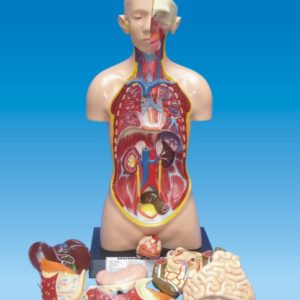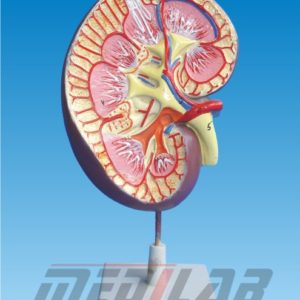Description
A human torso model is a representation of the upper body of the human body, including the organs, muscles, bones, and other structures. It is used for educational or research purposes. The model can be a physical replica, a computer simulation, or a combination of both.
Physical models of the human torso can be made from materials such as plastic, silicone, or rubber, and they can be highly detailed and accurately represent the size, shape, and structure of the human torso. These models can be dissectible to allow for further examination of the internal structures.
Computer simulations of the human torso can be interactive and provide a dynamic learning experience by allowing users to manipulate the virtual model to better understand the anatomy and physiology of the human torso.
Human torso models can be useful tools for medical professionals, students, and anyone who wants to learn more about the anatomy and physiology of the human body. They can also be used in medical training and to demonstrate the effects of various diseases and conditions that affect the torso, such as digestive disorders, heart disease, and lung conditions. By examining the internal structures and functions of the human torso, the user can gain a deeper understanding of the human body and how it works.







